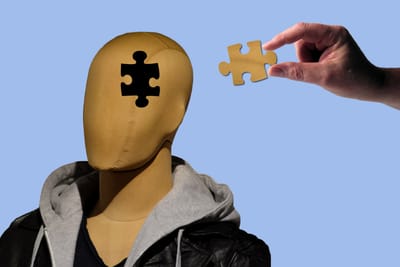talking About mental health

25% UK population will have a mental health condition at some point in their lives. It is not something to be hidden- no different than a physical health condition like a broken leg. That is 1 in 4 of us. In a room of colleagues or a supermarket there may be many people going through similar thoughts and feelings to yourself.
My job is not to diagnose or label - we can leave that to Doctors, but this page describes some conditions which can be helped by counselling with me:
Anger: explosive reaction, quick to take offence. Behaviour which is not acceptable to others
Anxiety: excessive worry , feeling tense concerned about events which are about to happen or might happen in the future. They can overwhelm us and prevent enjoyment of life and cause loss of sleep.
Bereavement and Loss: There are many stages between what we knew and where we are now and counselling can help us to climb these stages and learn to be in our new normal, learning to live without that loved one in our life.
Body Dysmorphic Disorder BDD: Excessive thoughts or rumination on one part of the body such as breasts or lips or the whole body believing that that part prevents you being lovable or worthy.
Chronic Health conditions: For example, Chronic Fatigue syndrome, Fibromyalgia, Chronic pain, Functional Neurological Conditions, to give but a few examples. These can have a massive impact on how day to day life is lived and experienced. Counselling won't make them go away, but may help you to live a better life with these conditions.
Depression: Feeling low and lacking self-worth unable to concentrate and enjoy life. This can cause excessive sleepiness and lack of vitality, and an inability to enjoy life..
Perinatal and post natal depression: before and after the birth of a child.
Post traumatic Distress Disorder PTSD: This may be caused by witnessing a fearful event or by sexual abuse or rape, and may be characterised by flashbacks from the event, intense distress at triggering images , fear to return to places.
Self-esteem: How good we feel about ourselves. How we feel others must perceive us.
Self-harm: Deliberately cutting, scratching, head smacking, burning to feel release of emotion.
Stress: Emotional strain caused by adverse circumstances. Up to 33% say they are under high stress at one time or another. Sometimes we feel trapped by a situation and unable to see a way out.
Suicidal Ideation: Many people think about suicide and a small proportion go on to make plans for their suicide. A tinier, but significant proportion act on their thoughts. Counselling can help explore our feelings. Counselling is not an emergency service -Samaritans are available 24/7 on 116 123
Trauma: A deeply distressing event which can cause long-term emotional distress if thoughts and feelings are not unpacked.
An excellent website for more information is www.mind.org
My job is not to diagnose or label - we can leave that to Doctors, but this page describes some conditions which can be helped by counselling with me:
Anger: explosive reaction, quick to take offence. Behaviour which is not acceptable to others
Anxiety: excessive worry , feeling tense concerned about events which are about to happen or might happen in the future. They can overwhelm us and prevent enjoyment of life and cause loss of sleep.
Bereavement and Loss: There are many stages between what we knew and where we are now and counselling can help us to climb these stages and learn to be in our new normal, learning to live without that loved one in our life.
Body Dysmorphic Disorder BDD: Excessive thoughts or rumination on one part of the body such as breasts or lips or the whole body believing that that part prevents you being lovable or worthy.
Chronic Health conditions: For example, Chronic Fatigue syndrome, Fibromyalgia, Chronic pain, Functional Neurological Conditions, to give but a few examples. These can have a massive impact on how day to day life is lived and experienced. Counselling won't make them go away, but may help you to live a better life with these conditions.
Depression: Feeling low and lacking self-worth unable to concentrate and enjoy life. This can cause excessive sleepiness and lack of vitality, and an inability to enjoy life..
Perinatal and post natal depression: before and after the birth of a child.
Post traumatic Distress Disorder PTSD: This may be caused by witnessing a fearful event or by sexual abuse or rape, and may be characterised by flashbacks from the event, intense distress at triggering images , fear to return to places.
Self-esteem: How good we feel about ourselves. How we feel others must perceive us.
Self-harm: Deliberately cutting, scratching, head smacking, burning to feel release of emotion.
Stress: Emotional strain caused by adverse circumstances. Up to 33% say they are under high stress at one time or another. Sometimes we feel trapped by a situation and unable to see a way out.
Suicidal Ideation: Many people think about suicide and a small proportion go on to make plans for their suicide. A tinier, but significant proportion act on their thoughts. Counselling can help explore our feelings. Counselling is not an emergency service -Samaritans are available 24/7 on 116 123
Trauma: A deeply distressing event which can cause long-term emotional distress if thoughts and feelings are not unpacked.
An excellent website for more information is www.mind.org